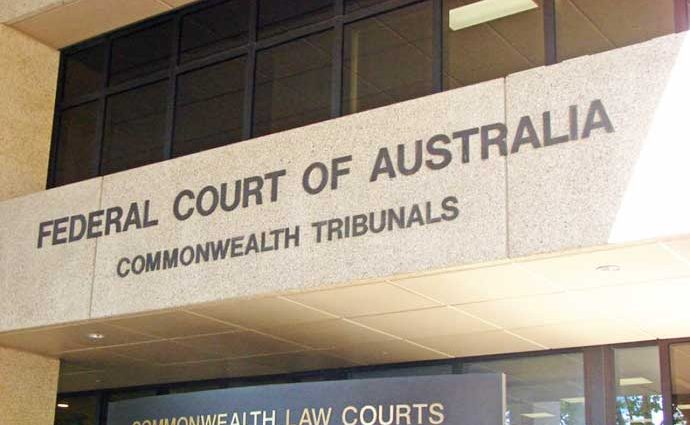Is PDWL decision judicial activism challenging political intent?
The Acting Minister for Immigration Alan Tudge is under fire from the Federal Court for not allowing an Afghani asylum seeker who can only be referred to as PDWL out of detention, when the refusal to grant him protection visa by the Immigration department, was overturned by the Administrative Appeals Tribunal (AAT).
PDWL, a member of the Afghani Hazara community and a Shia Muslim had applied for a protection visa (asylum) in 2016.
While his application was pending, he had engaged in a fight and was charged and convicted and sentenced to more than 12 months’ imprisonment. Under the Australian Migration Act 1958, anyone convicted of a crime punishable for more than 12 months’ imprisonment – fails the character test to be granted visa to live in Australia permanently.
In late 2019, an officer of the Immigration department, acting in the capacity of a delegate of the minister – applied Section 501(6)(a) of the Migration Act 1958 concluding that PDWL had failed the character test and hence refused to grant him the protection visa.
PDWL applied for a review of that decision to the AAT. Reviewing that decision, the AAT not only overturned the delegate’s decision of refusal to grant PDWL the protection visa but went beyond its powers to order grant of the protection visa.
The Minister immediately ordered to file an appeal against the AAT decision in the Federal Court challenging the grant of protection visa by the AAT. Pending the hearing of the appeal, in the belief that the AAT got it wrong, PDWL was kept in detention.
The Minister challenged the decision in summary pleading:
- The AAT got the decision wrong; and
- The AAT did not have the power to give PDWl the visa it gave.
In the ‘one of a kind decision’ where the Minister won, yet lost, the Court has criticized the Minister’s conduct and rewarded the asylum seeker for it.
In paragraph 5 of the Judgement (Minister for Immigration, Citizenship, Migrant Services and Multicultural Affairs v PDWL [2020] FCA 1354]) the court accepted the jurisdictional error in the ATT’s decision but refused to take away the wrongly awarded protection visa to PDWL. The Court said:
It is concluded that the Minister has established jurisdictional error on the part of the Tribunal, but that relief should be refused in the exercise of the Court’s discretion. The continued detention of PDWL subsequent to the Tribunal decision, and the Minister’s conduct in respect to interlocutory applications made at the outset of the present proceeding, it is further concluded, dictate that the Minister should be denied the fruits of his success. PDWL, it is thus concluded, remains the holder of the protection visa granted to him by the Tribunal. There should be no order for costs. [5]
Dismissing the appeal, the Court, in a scathing decision said that the Acting Immigration Minister “engaged in conduct which can only be described as criminal”.
Justice Geoffrey Flick warned the minister he “cannot place himself above the law”.
In a decision which may sound very strange to a layman, the Federal Court has allowed the Afghan man to keep the visa awarded to him by the AAT despite agreeing that it had got the law wrong.
Minister Tudge has denied that he acted improperly, but refused further comment, pending a possible appeal.
The decision potentially exposes Minister Tudge to both civil and potentially criminal sanctions, including for contempt of court.
Weird it is that PDWL was kept in detention when an affidavit sworn by the Minister’s solicitor which accompanied the Minister’s application included the following statement about PDWL’s detention (at paragraph 8.1):
The effect of the AAT’s decision is that the First Respondent [PDWL] has been granted the Visa and he is in the process of being released from Yongah Hill Immigration Detention Centre in Western Australia at the time this affidavit is being affirmed.
Strange decision in particular, where the Court criticizes the Minister of the Crown for not complying with court’s direction to release PDWL from detention and then refusing to correct the AAT’s ultra vires action in wrongly awarding visa to PDWL – as a punishment to the Minister.
Does this decision represent a new judicial activism where the might of political ‘intent’ – both written and unwritten, is under scrutiny by the judiciary?
A ‘YES’ will sound good but all Australians must ensure above and beyond sloganism and posturing, whether social, political or even judicial, our national interest comes first. Arbitrary decisions are costing hundreds of millions of dollars to the Australian tax payer in legal costs each year.
Similar Posts by The Author:
- To save the Labor party’s chances, it is imperative Anthony Albanese exits
- Has Justin Trudeau sunk India-Canada bilateral relations to the point of ‘beyond repair’?
- Fatima Payman’s ‘Australia’s Voice’ – Lessons from Kaushaliya Vaghela’s Vic Labor stint
- Haryana puts Rahul Gandhi back in the box
- Dr TJ Rao OAM, a legend will live on

